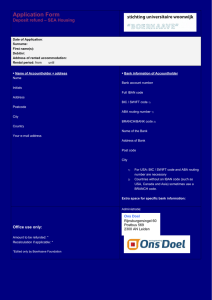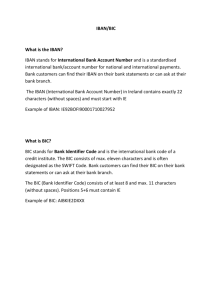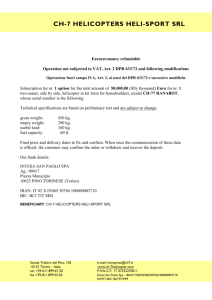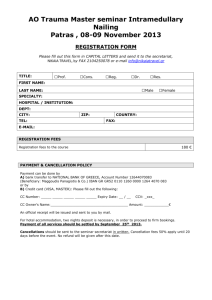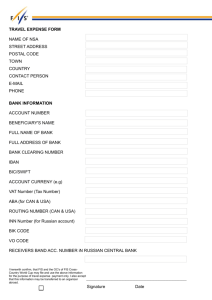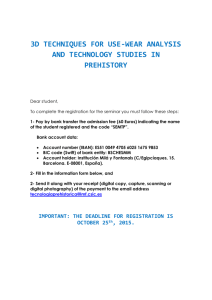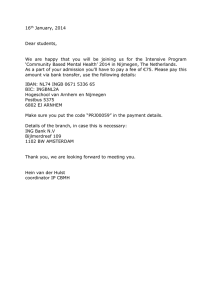International Banking IBAN validations
advertisement
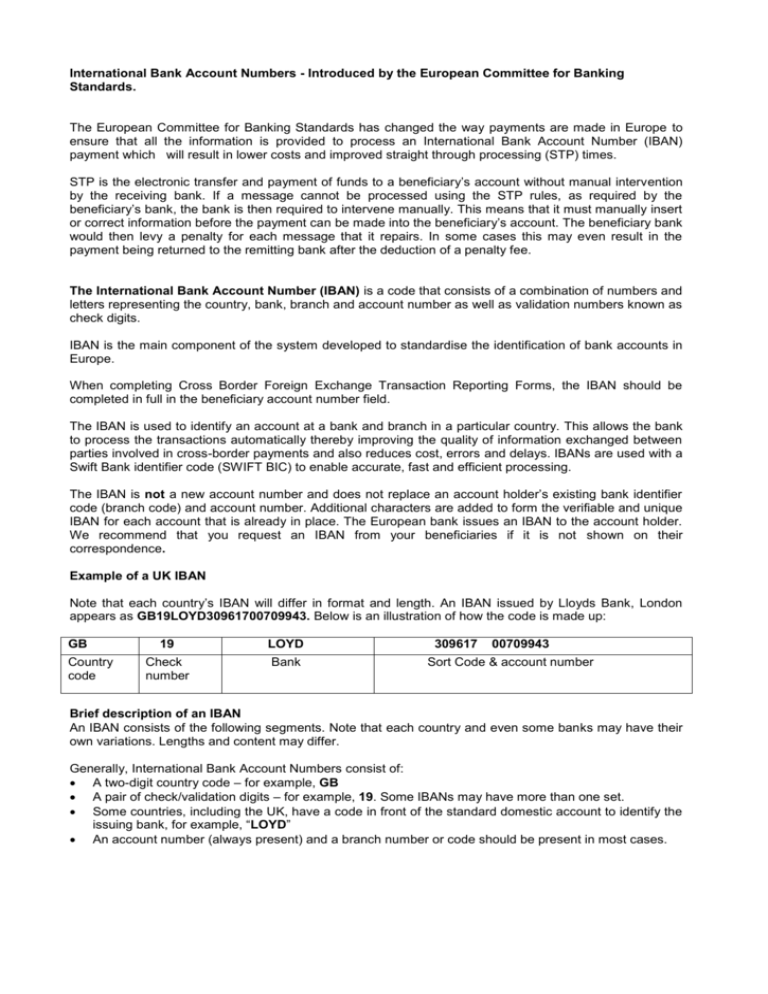
International Bank Account Numbers - Introduced by the European Committee for Banking Standards. The European Committee for Banking Standards has changed the way payments are made in Europe to ensure that all the information is provided to process an International Bank Account Number (IBAN) payment which will result in lower costs and improved straight through processing (STP) times. STP is the electronic transfer and payment of funds to a beneficiary’s account without manual intervention by the receiving bank. If a message cannot be processed using the STP rules, as required by the beneficiary’s bank, the bank is then required to intervene manually. This means that it must manually insert or correct information before the payment can be made into the beneficiary’s account. The beneficiary bank would then levy a penalty for each message that it repairs. In some cases this may even result in the payment being returned to the remitting bank after the deduction of a penalty fee. The International Bank Account Number (IBAN) is a code that consists of a combination of numbers and letters representing the country, bank, branch and account number as well as validation numbers known as check digits. IBAN is the main component of the system developed to standardise the identification of bank accounts in Europe. When completing Cross Border Foreign Exchange Transaction Reporting Forms, the IBAN should be completed in full in the beneficiary account number field. The IBAN is used to identify an account at a bank and branch in a particular country. This allows the bank to process the transactions automatically thereby improving the quality of information exchanged between parties involved in cross-border payments and also reduces cost, errors and delays. IBANs are used with a Swift Bank identifier code (SWIFT BIC) to enable accurate, fast and efficient processing. The IBAN is not a new account number and does not replace an account holder’s existing bank identifier code (branch code) and account number. Additional characters are added to form the verifiable and unique IBAN for each account that is already in place. The European bank issues an IBAN to the account holder. We recommend that you request an IBAN from your beneficiaries if it is not shown on their correspondence. Example of a UK IBAN Note that each country’s IBAN will differ in format and length. An IBAN issued by Lloyds Bank, London appears as GB19LOYD30961700709943. Below is an illustration of how the code is made up: GB Country code 19 LOYD Check number Bank 309617 00709943 Sort Code & account number Brief description of an IBAN An IBAN consists of the following segments. Note that each country and even some banks may have their own variations. Lengths and content may differ. Generally, International Bank Account Numbers consist of: A two-digit country code – for example, GB A pair of check/validation digits – for example, 19. Some IBANs may have more than one set. Some countries, including the UK, have a code in front of the standard domestic account to identify the issuing bank, for example, “LOYD” An account number (always present) and a branch number or code should be present in most cases. A printed IBAN such as on an invoice, is likely to be prefaced by the word IBAN, for example, IBAN AT611904300234573201. The sender of the funds does not need enter the word “IBAN” on the bank’s application form to transfer funds. IBANs can be obtained from most European suppliers. Countries using IBANs: -Austria -Germany -Belgium -Greece -Denmark -Iceland -Finland -Ireland -France -Italy -Luxembourg -Netherlands -Norway -Poland -Portugal -Spain -Sweden -Switzerland -United Kingdom Examples of IBANs: Austria Belgium Denmark Finland France Germany Greece Iceland Ireland AT611904300234573201 BE62510007547061 DK5000400440116243 FI2112345600000785 FR1420041010050500013M02606 PL60102010260000042270201111 DE89370400440532013000 GR1601101250000000012300695 IS140159260076545510730339 IE29AIBK93115212345678 Italy Luxembourg Netherlands Norway Poland IT40S0542811101000000123456 LU280019400644750000 NL39RABO0300065264 NO9386011117947 Portugal Spain Sweden Switzerland PT50000201231234567890154 ES0700120345030000067890 SE3550000000054910000003 CH9300762011623852957 There are countries that do not use the IBAN payment system and below is a list these countries. They do, however, have certain rules in terms of processing payments. Below is a guide. STP requirements for countries that do not use the IBAN system: Australia Canada United Kingdom, Channel Islands &Isle of Man South Africa United States 6-digit branch code (for example, 123-456) 8-digit branch code consisting of: 3 Institution, 5 Branch/Transit numbers. 6-digit branch code (for example, 123456 or 12-34-56) 6-digit branch code (for example, 123456 or 12-34-56) 9-digit ABA or Fedwire code (123456789) Please do not hesitate to contact us if you have any questions or need more information. Contact details: 0860 012 3006 Business online@standardbank.co.za www.standardbank.co.za
